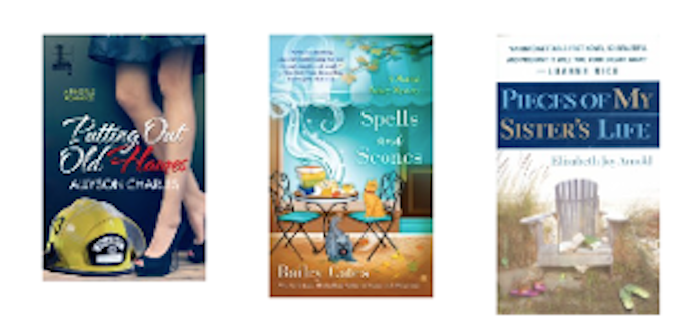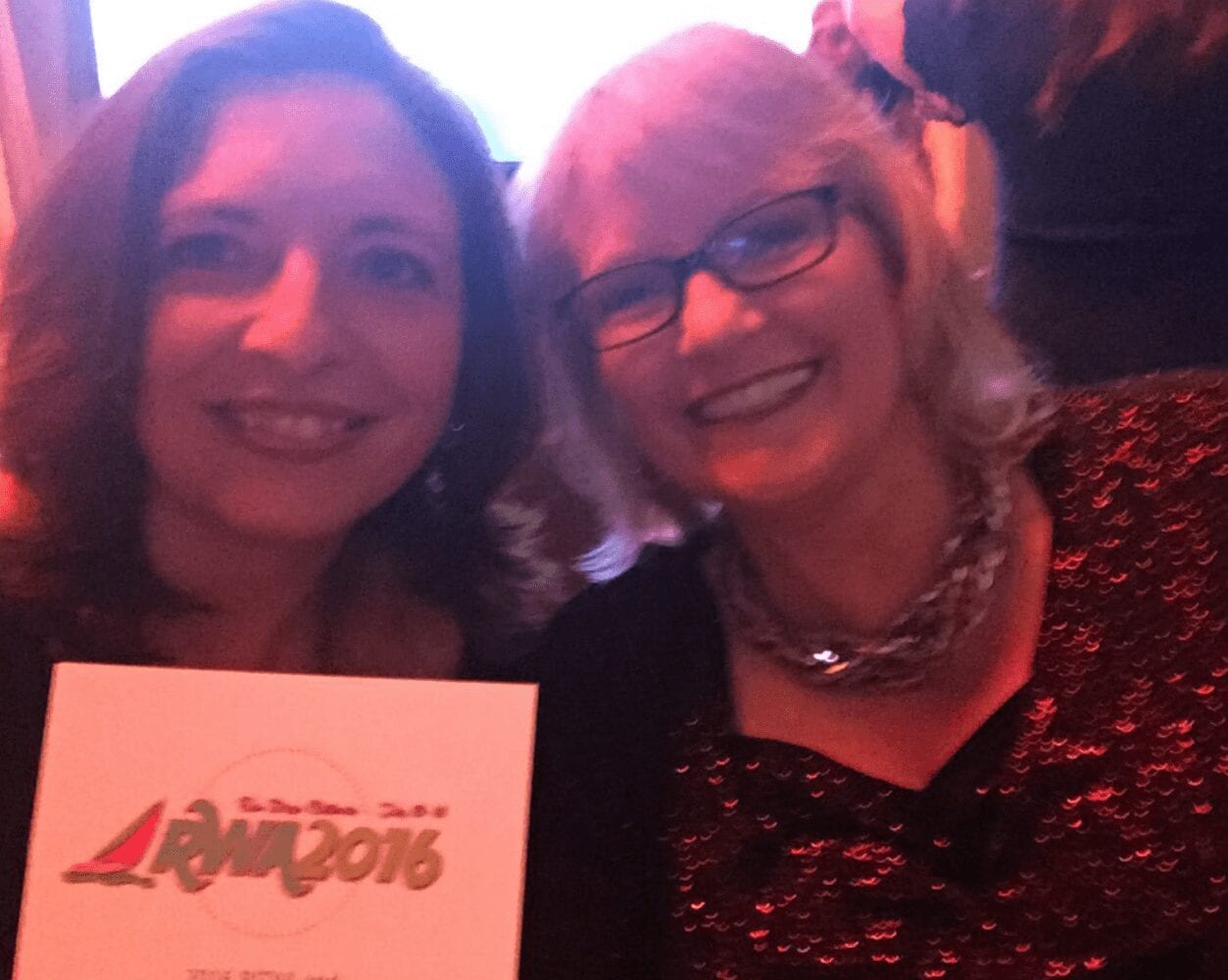
So here’s a Quaz first …
I met Kim Lionetti on a blind date.
It took place, oh, two decades ago, when we were both young and up and coming and doing the whole New York City thing. And while we only went out once or twice, it was the rare go-nowhere romance that transformed into a genuine friendship.
All these years later, Kim remains one of my all-time favorites, as well as a go-to person when it comes to the literary world. Having spent much of her career as an editor at Berkley Publishing, 13 years ago she switched the representation, and now works as an agent at BookEnds, where she specializes in women’s fiction, mystery, young adult and romance. Kim’s titles include, well, hey, take a look …


Today, Kim explains why print still has legs; why authors need to think about their audiences and how a jerk writer can make one’s life miserable. You can visit BookEnds here, and follow Kim on Twitter here.
Kim Lionetti, here’s something to read—the 310th Quaz …
JEFF PEARLMAN: So Kim, you’re a literary agent. And all we hear about is the decline of print—newspapers dying, magazines dying, etc … etc. Yet books … it seems sorta, eh, not as bad. I dunno, I can’t tell. So tell me—where are we?
KIM LIONETTI: Well, there’s certainly been a gigantic shift in the industry over the last 15 years, with the rise of ebooks and Amazon. Print numbers are down quite drastically since I first started out in the business over 20 years ago and only some of that has been replaced with ebook sales. With that said, I’m confident the readers are still there and always will be. I’ve already sold more books in the first five months of 2017 than I have in any previous year, so clearly book publishing is alive and strong.
I think it’s still an industry in transition. Publishing companies are continuing to consolidate and find ways to operate as leanly as possible. While some authors are doing well with self-publishing, most are finding it difficult to attract readership in a very crowded marketplace, and are finding traditional publication with the big houses more attractive again.
Another encouraging sign to me is the health of the young adult market which decidedly favors print books over digital. Hopefully the voracity of their readership will translate to other markets as they grow older.
J.P.: When we first met you were an editor working on, I believe western-themed romance novels. I’ll write that again, because it’s super fun: western-themed romance novels. Please explain what that was, how it happened, what it was like.
K.L.: Oh Jeff, I can see I need to school you a bit here. I think you’re referring to the adult westerns I was working on, which are very different from western-themed romance novels, as a matter of fact. The adult westerns, some of them first started by Playboy and with series titles like LONGARM and SLOCUM, were books about lawmen of the Old West catching bad guys and bedding damsels and harlots alike. They were squarely written to a male audience. Western-themed romance novels are written primarily for women. Key difference in content is the length of the love scenes. Adult westerns were much more wham-bam-thank-you-ma’am.

J.P.: I imagine you received a gazillion manuscripts a year. So how does this process work? Is it even worth it for an unknown writer to send you, cold, his/her book? What happens to the drafts when you get them? Do you have an assistant go through them? A dog? No one?
K.L.: As a matter of fact, BookEnds doesn’t accept unsolicited manuscripts. Writers query us first, meaning they email us (actually we have a form now through our website) with a description of their book, and then we let them know if we’re interested in taking a look. These days I receive about 200 queries a month, but we have seven agents on staff now, and receive at least 1,500 queries a month combined.
We’ve had interns read for us at times, but for the most part we read them all ourselves.
J.P.: How can you tell when a book is good? Like, do you have to read the whole thing? Half? Are you ever intrigued by a writer while not actually liking the book? Or vice versa?
K.L.: Sometimes I read a page and know it’s not going to work. Other times I have to read the whole book before I can make a decision. It varies widely.
I primarily represent fiction, so mostly I just want to be engaged by the voice, the characters, and the story. If all of that falls into place, then I’m going to offer representation.
There have been plenty of times that I’ve liked the writing, but the story just didn’t grab me. In those cases, I’ll offer revision suggestions and ask them to resubmit, or just ask them to be sure and contact me with their next book if they still find themselves looking for an agent.

J.P.: You have a son with autism, and on the Book Ends website your bio includes, “Kim is dedicated to representing the stories and voices of individuals with special needs and their families.” But what does that actually mean? And how, exactly, does having an Autistic son impact who you are? How you go about life?
K.L.: There’s a significant movement in book publishing right now to represent diversity and #ownvoices, particularly in young adult books. Along with representing people of every race, religion, sexuality, and gender identity, it’s important to me that individuals with disabilities are represented as well. Not just a developmental disability, like Nicky’s, but any special need. The more voices we see from these perspectives, the better the rest of the world will be able to understand and relate.
I think the most significant way Nicky’s autism has affected me, personally, is it’s made me see what’s important in life. I used to care much more about what other people think and I’d get hung up on trivialities. It’s important to me that Nicky’s proud of the person he is. So from the start I’ve never let any of us shy away from the “label.” I’m super open about being an autism mom and sharing my experiences. The more all of us talk about it, the less “other” it becomes. In fact, my 8-year-old daughter just spoke to her third grade class about her brother for Autism Awareness Day.

J.P.: I’m not asking for names, but what’s it like dealing with really difficult writers? Do you find yourself soothing egos? Managing expectations? And, again, without names (unless you choose to volunteer), what’s your personal story of dealing with a diva/divo?
K.L.: Managing expectations is definitely part of my job. Overall, I’ve been lucky with the clients I work with, but to be honest, that’s part of the reason I decided to become an agent. So that I’d have the power to choose who I wanted to work with.
My worst experience with an author was when I was still working as an editor. One of the more successful books I worked on was written by a misogynist pig. He was horribly condescending and made his publicist cry at one point. It came time to decide if we’d buy more books from him. I told my publisher I thought life was too short to keep dealing with a guy like this. And while she agreed he was despicable, she said I had to offer on his next book. I get it. It was just good business sense. But at that moment, agenting became much more attractive to me, because at least then I’d be directly compensated (in the form of commission) for the success of jerks like him and ultimately I’d have the power to say goodbye if I didn’t want to deal with him anymore.
J.P.: How does working in the field impact your reading habits? Are you as passionate as books as ever? Do you just wanna kick back and watch the Real Housewives?
K.L.: Obviously, I went into this industry because I love to read. Sometimes, my aging eyes need a break and I catch up on Netflix, but I try to read “non-work” books as much as possible, for fun and also to keep abreast of the competition. I find that when I read a really great book for pleasure, it reinvigorates me and makes me hungry to go out and find more clients with books that excite me.

J.P.: Greatest moment of your career? Lowest?
K.L.: I’m not sure I have one greatest moment. It’s certainly a high point when a client hits the New York Times’ bestseller list, but I get just as excited when I get to call a new author with their very first offer of publication. I love my job.
The lowest was probably when I dealt with that aforementioned writer at my old job.
J.P.: You’re not gonna like this, but there have been times when I’ve gone through a hard edit with someone who doesn’t work as a writer and I think to myself, “What the fuck do you know?” So Kim—what the fuck do you know?
K.L.: I’m not a expert writer, but I’m an expert reader. I think the biggest trap writers can fall into is writing only for themselves. If you’re looking for commercial success, you have to remember to write for an audience. So, I’ll tell you what I know. I know what I want to read. I know what readers want to read. And I also know what editors want to read. That’s what makes me a good agent.

QUAZ EXPRESS WITH KIM LIONETTI:
• Rank in order (favorite to least): Kim Fields, Hakim Warrick, Haines Shoe House, Pam Dawber, the designated hitter, “The Lord of the Rings,” Dana Rohrabacher, the day after Easter, Drip Café: Drip Café, Pam Dawber, the day after Easter, Haines Shoe House, The Lord of the Rings, Hakim Warrick, Kim Fields, the designated hitter, Dana Rohrabacher
• One question you would ask Gheorghe Mureșan were he here right now?: How’s the weather up there?
• Five all-time favorite non-fiction books: I pretty much never read nonfiction. So feel free to insert Jeff Pearlman titles here. 😉
• Five all-time favorite fiction books: These change by the week, but excluding my clients’ work: What’s Eating Gilbert Grape by Peter Hedges; Election by Tom Perrotta; A Step Toward Falling by Cammie McGovern; Pride and Prejudice by Jane Austen; Big Little Lies by Lianne Moriarty
• Three memories from your senior prom: Voluminous blue metallic dress; Voluminous Aqua Net hair; Gay best friend as date
• Ever thought you were about to die in a plane crash? If so, what do you recall?: I heard the first plane flying overhead the morning of 9/11 on my walk to work, which was 20 blocks up from the World Trade Center, and watched the first tower fall from our office window. So, ever since then I’m much more of a nervous flier. Mostly when I get scared, I think of my children and how they need me, especially Nicky.
• Celine Dion calls. She has a literary project she wants you to represent. It’s about her farts smelling like sardines and it’s called, “Celine: My Farts Smell Like Sardines.” You in?: Easy out. I don’t represent nonfiction.
• In exactly eight words, make a case for arm wrestling in winter: Cabin fever can make anything seem reasonably entertaining.
• Three all-time favorite non-Carrie Underwood/Kelly Clarkson American Idol contestants: Jennifer Hudson; Phillip Phillips (my son’s all-time favorite artist); Chris Daughtry
• This happened. How should I feel?: Relevant.